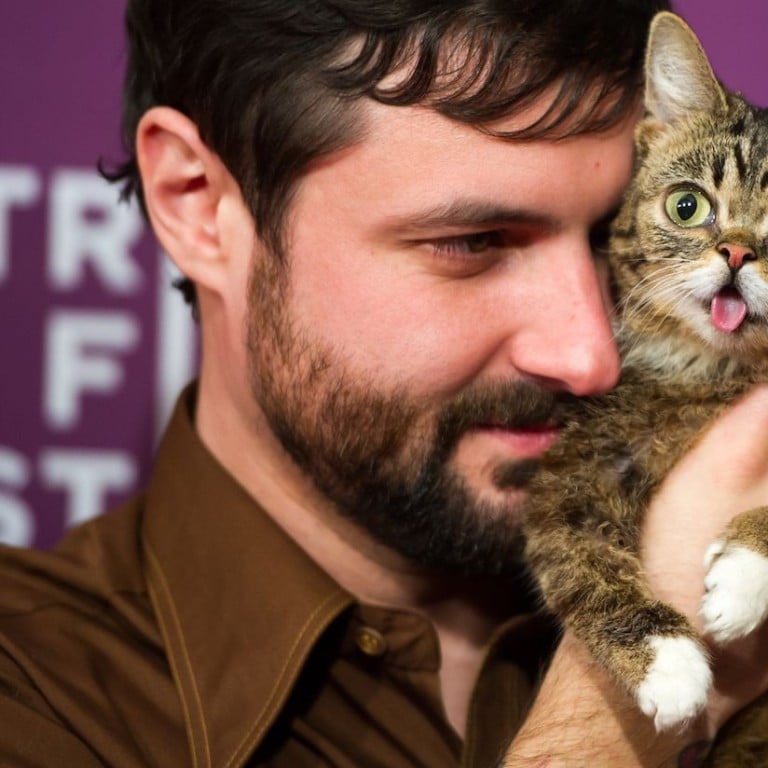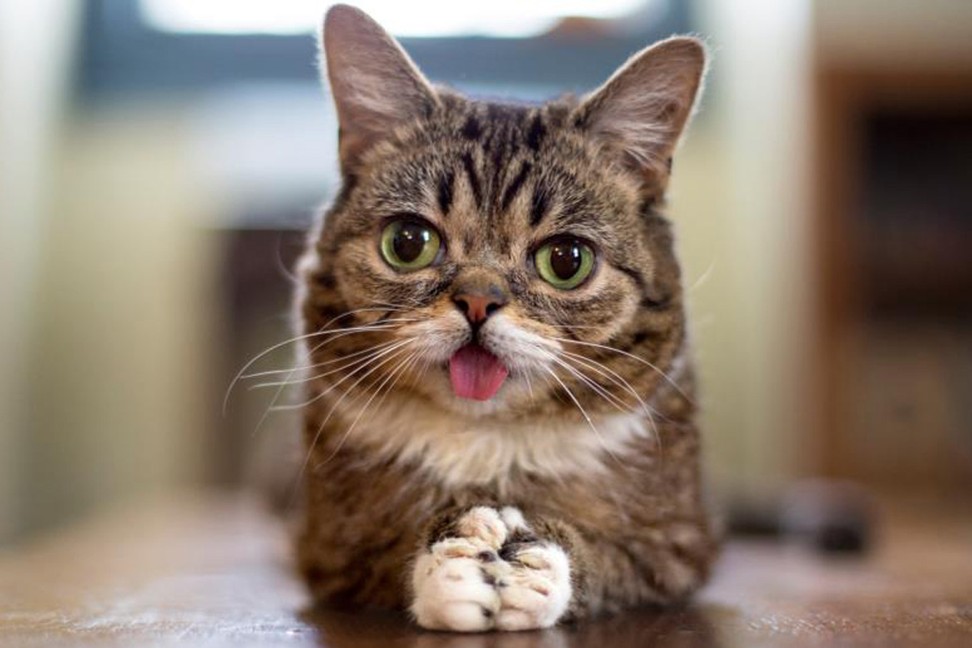
Meet the pets of Instagram: why cats and dogs make great influencers on the internet, from Lil Bub to Doug the Pug
- Some of the biggest Instagram accounts don’t belong to people; they belong to animals like the late Lil Bub, a cat, and Doug the Pug
- These social media stars amass millions of followers and their owners often use their star power to promote animal welfare
They have millions of followers on Instagram. They generate major profits for their owners. They are … pet influencers.
The death last Sunday of Lil Bub, a cat whose tongue was always hanging out due to genetic anomalies, inspired a wave of emotion that highlighted the internet’s power to elevate just about anything to cult status.
“She was a ray of pure joy in my life and so many others,” said one Instagram user, who uses the handle @missmaddyg.
Lil Bub rose to fame after her adoption in 2011, when her owner, music producer Mike Bridavsky, began posting photos and updates about her online. Her story garnered three million followers on Facebook, 2.4 million on Instagram and more than 800,000 on Twitter.
Bub’s fame eventually caught the attention of scientists. In May 2015, researchers at the University of Missouri in the United States sequenced her genome as part of a project to determine what genetic variations had caused her adorable deformities.

Bridavsky also started a national fund for special needs pets, the first of its kind, with Bub serving as its face. “Bub has made a huge difference in the world of animal welfare and in the lives of millions of people worldwide,” Bridavsky wrote on Instagram, noting the fund has raised US$700,000 for “animals in need,” with US$75,000 raised in 2018 alone.
Over the course of her life, the cat, based in the US state of Indiana, lent her star power to multiple causes supported by Greenpeace and the American Society for the Prevention of Cruelty to Animals (ASPCA).
Since 2013, Lil Bub has also been the face of campaigns with People for the Ethical Treatment of Animals (Peta) promoting sterilisation and pet adoption, as opposed to buying designer breeds.
Famous at 11: the rise of child Instagramers in Russia
While Peta campaigns director Ashley Byrne welcomes pet influencers’ charitable ventures, she is also adamant that the work must not come at the expense of the pets’ welfare.
Nobody should “treat animals as accessories or frivolous possessions”, she said. “It’s important for people with animals who have an audience on the internet to encourage their followers to treat their pets like members of the family.”
That, says animal talent manager Loni Edwards, is exactly what makes pet influencers so successful.

Edwards’ talent agency, The Dog Agency, manages pet influencers of all species, from Bruno the fat cat to CEO Edwards’ own French bulldog.
“As a society, we’ve evolved so that we now think of pets as our children,” Edwards said in a November 2018 interview with Vox. “They’re such an important part of our lives.”
As of 2019, American households owned more than 42 million cats and 63 million dogs. The market for pet products in the US earned US$72 billion in 2018, according to the American Pet Products Association (Appa).

Additionally, since Instagram launched in 2010, the word “cat” has been used on the platform 193 million times and the word “dog” 243 million times.
“Pets raise endorphins and make people feel happy,” Edwards said. “They are adorable to look at and are easier to connect with than human influencers. Human-facing brands want to work with pet influencers because they want to show that they align on the values of their consumer, and their consumer loves pets.”
As a result, pet influencers can be incredibly lucrative. Lil Bub’s fellow celebrity feline Grumpy Cat – known for her perpetual scowl – amassed 8.5 million fans on Facebook, 2.5 million followers on Instagram and 1.5 million on Twitter.
Just before her death, Lil Bub starred in campaigns advertising clothing and coffee for “Black Friday” sales.
The highly commercial pet influencer industry could seem at odds with charitable giving. But Bridavsky said Bub had left a proud legacy of raising both funds and spirits.

.png?itok=arIb17P0)